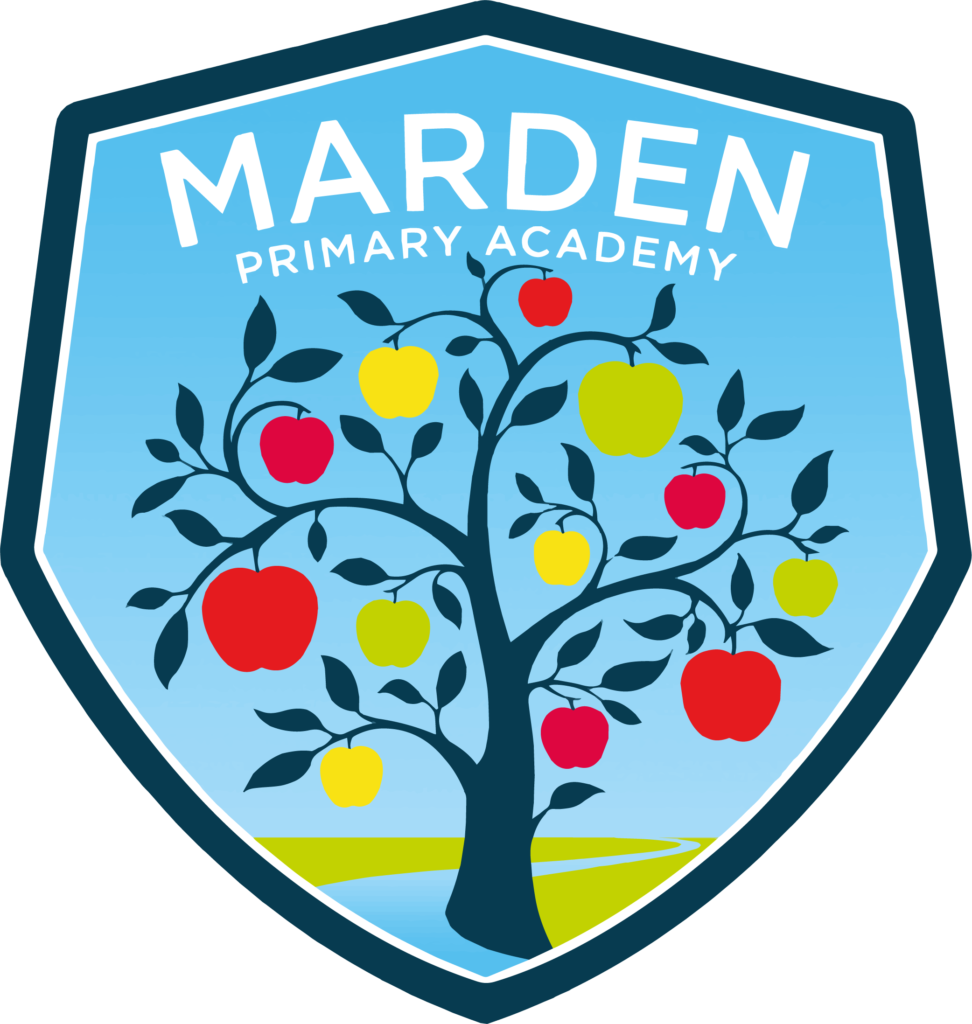At Marden, we want our children to develop and become lifelong mathematicians, providing them with life skills by using maths as the vehicle to enable them to access the wider world.
We know how important developing and improving skills and knowledge over time are to developing progression. Our curriculum is designed to allow children to make rich connections and to be able to reason, problem-solve and develop fluent conceptual understanding so that learners deepen and broaden their knowledge and skills. We use the White Rose long term overviews and schemes of learning to ensure that our planned curriculum details the core facts, concepts, methods and strategies that give our pupils the best chance of developing proficiency. We sequence the teaching of linked facts and methods to take advantage of the way that knowing facts help learn methods and vice versa
The curriculum is broken into small steps of learning that carefully sequence content so that our mathematics curriculum is a guarantee of long term learning. These small steps take into account the hierarchy of knowledge and skills within maths and build these sequentially and progressively to support children in successfully achieving their end goals. Each step builds on the previous learning steps and interweaves prior content with new concepts, which helps children to grasp the links between topics and to understand them more deeply.
Consolidation and retrieval practice is used to revisit any misconceptions, link learning and recap knowledge already taught. This also allows us to address misconceptions or gaps that children may have so that children can stay up with their peers rather than fall behind.
Subject Leadership and subject knowledge:
Our White Rose schemes of learning frame the curriculum to support teachers in planning effectively sequenced learning that builds on prior knowledge and skills.
We ensure that teachers have good subject knowledge through continuing professional development led by the Maths Lead and supported by the Trust Curriculum Advisor for Maths.
We work in collaboration and moderate with other Trust academies and through the teacher research group led by the local maths hub.
Our Maths Lead ensures that our school intent is enacted across the school through learning walks, moderation, pupil and staff voice and informal discussions with teachers.
Our Maths Lessons:
We use a variety of teaching and learning styles in lessons; this will allow for teachers to choose how to most effectively ensure conceptual understanding. We use Assessment for Learning opportunities to inform next steps. We endeavour to set work that meets the needs of all children but is also challenging so that all children have opportunities to master the concepts.
We expect opportunities for pupils to engage in talk:
- developing the children’s oral confidence and ability to reason and explain their thinking by encouraging them to answer in full sentences.
- using sentence starters and stem sentences to scaffold their responses and feed into how the children record the reasoning in their books.
- encouraging them to build upon what their peers say and equally challenge one another.
We follow a Concrete, Pictorial, Abstract approach:
- concrete manipulatives are used to introduce new concepts – children can physically manipulate to explore structure and construct meaning
- pictorial representations are used to support making connections and transferring understanding, building a bridge to the abstract concepts
- teachers choose the manipulatives carefully to use what will best scaffold understanding
- where appropriate, children will be given some agency, choosing the best manipulative or representation to solve a problem for themselves
Our lessons provide opportunities for:
- Group work
- Paired work
- Whole class teaching
- Individual work
Pupils engage in:
- Practical work
- Investigation work
- Problem-solving
- Mathematical discussion
- Consolidation
We recognise the importance of a secure foundation in mental calculation and recall of number facts before standard written methods are introduced.
Children will be expected to edit and correct work, which is completed using a purple pen. We use verbal feedback to support children with this valuable skill.
All that we do at Marden is designed to have the greatest impact on the children in their learning journey.
In EYFS, children will be able to talk confidently about their maths learning and can hold a conversation with their peers or adults about their learning. The children will have a clear enjoyment of maths. This confidence in maths and love of learning is then nurtured and developed as the children progress through the academy.
Our delivery of maths at KS1 and KS2 allows children to be confident in lessons and empowers them to use appropriate methods and strategies (such as manipulatives, pictorial and written methods) independently. This is reflected in the children’s maths books where evidence of the CPA approach can be seen. Children will have mastered the skills and knowledge taught within lessons. Our delivery allows children to be challenged and exposed to a mastery curriculum within a purposeful environment.
When considering our long term impact of teaching and learning at Marden, we focus on both end of year targets as well as their end of key stage targets. We strive for our children to reach age expectations at the end of their current academic year as well as their key stage. This includes the end of KS1 and KS2 statutory assessments as well as the year 4 multiplication check (supported by the use of TT Rockstars). We also think forward to ensuring that our children are well prepared for the secondary maths curriculum.
We use a variety of information to measure the impact of our mathematics curriculum and our teaching:
- Pupil and staff voice
- Lesson observations and learning walks
- Environment checks and work scrutiny
- Statutory end of Key Stage assessments data
- Internal data (from summative assessments)


